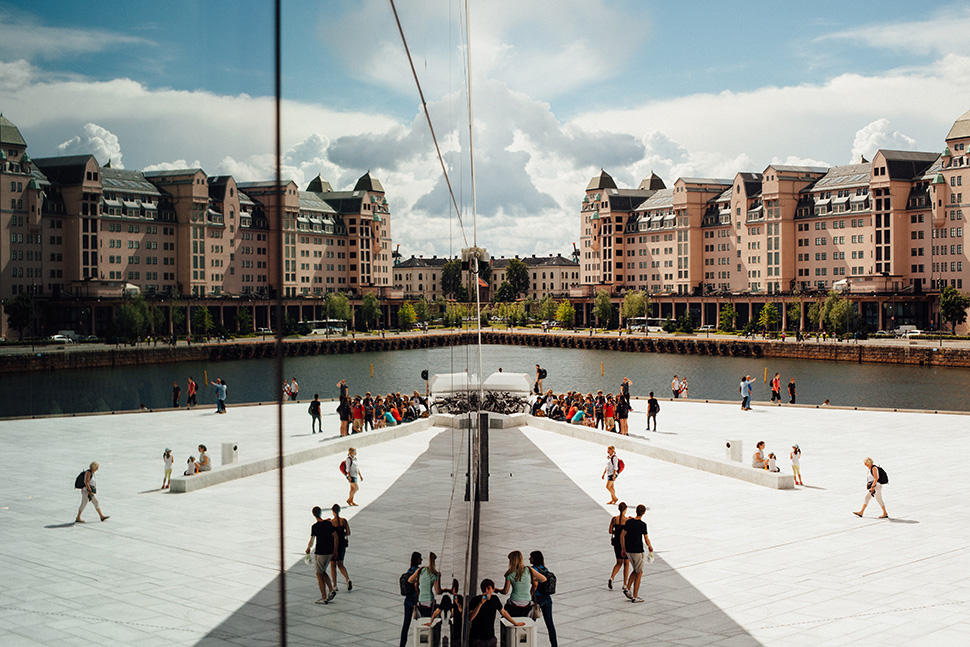
GreenGov - public leaders to co-create and promote to green shift
This project is now part for Urban Futures.
As of January 1 2020 Mistra Urban Futures platform in Gothenburg became Centre for Sustainable Urban Futures. Read more about Urban Futures.
The GreenGov is a research project led by the Norwegian Institute for Urban and Regional Research at the Oslo Metropolitan University. The project is funded by the Research Council of Norway through the BYFORSK initiative. Mistra Urban Futures is a partner in the project.
Cities are currently taking the lead in pursuing goals of sustainable, low carbon urban development. The purpose of GreenGov is to create new and cutting-edge knowledge about the challenges and dilemmas public leaders face in promoting the ‘green shift’, how they cope with them, and how their coping strategies affect the outcomes of the endeavours to make cities more green and sustainable.
We interpret the ‘green shift‘ as transformation towards sustainable, low carbon cities –acknowledging that this encompasses also resilient and energy smart or low energy/energy efficient society.
Research questions
Which leadership strategies and mechanisms can effectively support co-creation, learning and innovation in favour of the green shift?
More specifically, we are interested in how cities can build co-creation arenas and through these enhance their capacity for creating synergies between institutional layers of hierarchical, market-inspired and network measures that together make up the governance mechanisms available to political and administrative leaders when striving for sustainable low carbon transformation.
Four cities
The research will be based on case studies and co-creational actions in the cities of Oslo, Gothenburg and Copenhagen. Furthermore, GREENGOV will facilitate disruptive learning by weaving in examples of co-creational leadership from Cape Town; an ambitious, but dissimilar, city regarding its climate policies and activities. Mistra Urban Futures will be particularly involved in the Gothenburg case study and in theory development.
The project will combine transdisciplinary research with ‘CityLabs’, which will function as design experiments to investigate how different leadership interventions influence green co-creation in different contexts.
In the case study cities, we identify and compare their governance models aiming to further the green shift in different governance and political settings: within the city; in the wider metropolitan and national area; and in city-to-city relations (through global networks).
Goal
Main visions
1. Contribute cutting-edge knowledge on co-creational leadership as a means to enhance capacity for governing the green shift, through transdisciplinary research and shared learning in co-creation arenas (‘CityLabs’).
2. The project will develop knowledge and policy lessons on the “Scandinavian experience” in governing the green shift at city level – comparing capacities for co-creational leadership, learning, and innovation in the cities of Oslo, Copenhagen and Gothenburg.
Background
We start from the premise that the most pressing challenge for cities related to the ‘green shift’ is less about finding adequate technological solutions, and more about finding new ways of governing the transformation towards climate smart, energy efficient, inclusive, resilient and sustainable futures. However, the conventional structures and systems of the public sector are not set up to address the tasks of conceptualising, mapping and responding to problems of such a high degree of complexity.
Emerging theories of co-creation in the public sector underscore the critical importance of leadership for successful co-creation. Leadership gives direction to, creates arenas for, and sponsors co-creation. The dynamic interplay between leadership on the one side, and arenas of learning and co-creation on the other, is an understudied area that the GREENGOV project will address.
Team
The GREENGOV team is headed by the Norwegian Institute for Urban and Regional Research (NIBR) at the Oslo Metropolitan University represented by Hege Hofstad, PhD (lead); Trond Vedeld, PhD; Marianne Millstein, PhD; Geir Heierstad, PhD; Jan-Tore Berghei, MA; and Gro Sandkjær Hanssen, PhD.
Mistra Urban Futures is represented by David Simon, PhD and Sandra Valencia, PhD.
Roskilde University is represented by Professors Eva Sørensen and Jacob Torfing, and Annika Agger, PhD.
The University of Oslo is represented by Professor Anders Elverhøi.
The Institute for Transport Economics is represented by Anders Tønnesen, PhD.
The Energy Research Centre in Cape Town is represented by Hilton Trollip, MSc.
Questions about Greengov-project contact: Hege Hofstad eller Sandra Valencia.
News
- Researcher's workshop in Gothenburg (Feb 2019)
- Follow the project’s updates: https://blogg.hioa.no/greengov/
- A new report 2020: Urban Climate Governance and Co-creation (Cape Town, Copenhagen, Gothenburg and Oslo)
Filer
-
Urban Climate Governance and Co-Creation in Cape Town, Copenhagen, Gothenburg and OsloThe study provides an outline and comparative analysis of the evolution in climate policies and governance systems of four cities with ambitious climate goals and strategies; three Scandinavian cities, Copenhagen, Gothenburg and Oslo; and one South African city; Cape Town. In each city, we explore the evolution in climate goals, strategies, policy and institutional designs over two decades and how these materialize in distinct approaches to urban climate governance and co-creation. The study brings up some distinctive and important differences in the urban climate policies and governing approaches between the three Scandinavian cities and Cape Town, but the study also reveals many similarities in approaches across all the four cities. All the cities engage in diverse networks and co-creational arenas for shared climate responses at different levels and scales. 'Eight essentials for effective, sustainable and fair urban climate governance and leadership’ are suggested that might bring cities onto pathways towards climate transformation.